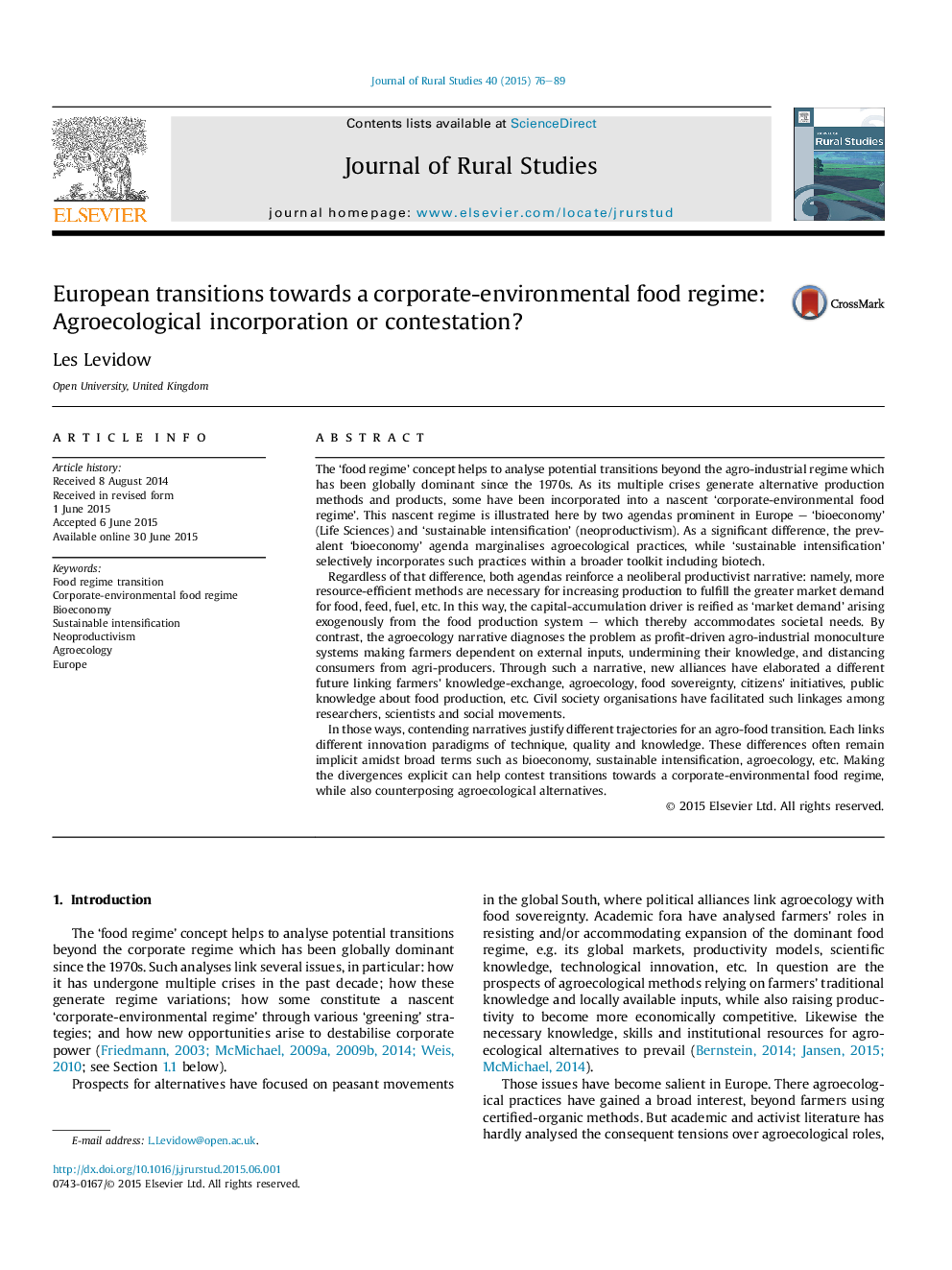| کد مقاله | کد نشریه | سال انتشار | مقاله انگلیسی | نسخه تمام متن |
|---|---|---|---|---|
| 92450 | 159966 | 2015 | 14 صفحه PDF | دانلود رایگان |
• The ‘agro-food regime’ concept helps to analyse transitions beyond the agro-industrial regime.
• Some alternatives have been incorporated into a corporate-environmental food regime.
• Its tensions are illustrated by two agendas – bioeconomy and sustainable intensification.
• New alliances have elaborated a different future linking farmers' knowledge-exchange and citizens' initiatives.
• Thus any regime transition has contending trajectories, whose divergences should be made explicit.
The ‘food regime’ concept helps to analyse potential transitions beyond the agro-industrial regime which has been globally dominant since the 1970s. As its multiple crises generate alternative production methods and products, some have been incorporated into a nascent ‘corporate-environmental food regime’. This nascent regime is illustrated here by two agendas prominent in Europe – ‘bioeconomy’ (Life Sciences) and ‘sustainable intensification’ (neoproductivism). As a significant difference, the prevalent ‘bioeconomy’ agenda marginalises agroecological practices, while ‘sustainable intensification’ selectively incorporates such practices within a broader toolkit including biotech.Regardless of that difference, both agendas reinforce a neoliberal productivist narrative: namely, more resource-efficient methods are necessary for increasing production to fulfill the greater market demand for food, feed, fuel, etc. In this way, the capital-accumulation driver is reified as ‘market demand’ arising exogenously from the food production system – which thereby accommodates societal needs. By contrast, the agroecology narrative diagnoses the problem as profit-driven agro-industrial monoculture systems making farmers dependent on external inputs, undermining their knowledge, and distancing consumers from agri-producers. Through such a narrative, new alliances have elaborated a different future linking farmers' knowledge-exchange, agroecology, food sovereignty, citizens' initiatives, public knowledge about food production, etc. Civil society organisations have facilitated such linkages among researchers, scientists and social movements.In those ways, contending narratives justify different trajectories for an agro-food transition. Each links different innovation paradigms of technique, quality and knowledge. These differences often remain implicit amidst broad terms such as bioeconomy, sustainable intensification, agroecology, etc. Making the divergences explicit can help contest transitions towards a corporate-environmental food regime, while also counterposing agroecological alternatives.
Journal: Journal of Rural Studies - Volume 40, August 2015, Pages 76–89
